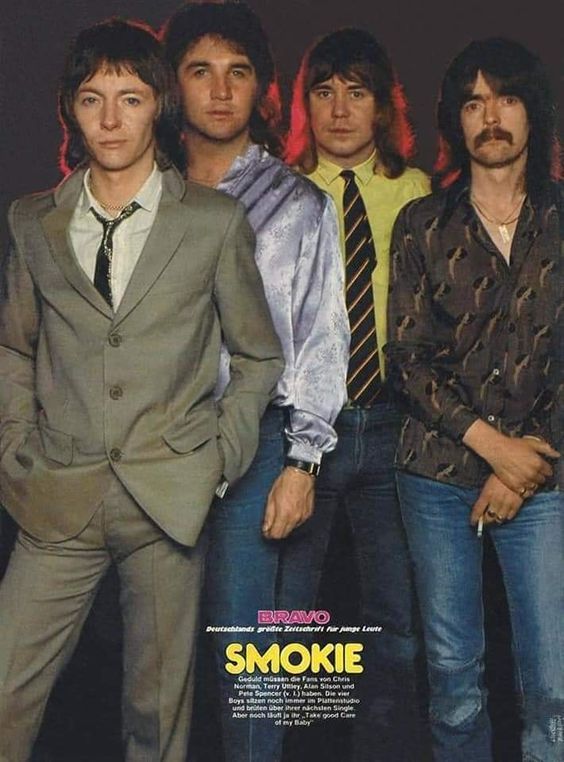
An Enduring Anthem of Uncertain Love
Ah, Smokie. Just the name itself conjures up images of simpler times, doesn’t it? For many of us who came of age in the mid-70s, their distinctive blend of catchy melodies and Chris Norman’s instantly recognizable gravelly vocals provided the soundtrack to countless youthful experiences. And among their impressive repertoire, few songs capture that quintessential Smokie essence quite like “If You Think You Know How To Love Me.” Released in 1975, this track wasn’t just another single; it was a phenomenon, soaring to an impressive No. 3 on the UK Singles Chart. It wasn’t quite a chart-topper, but its consistent presence on the airwaves and its enduring popularity cemented its place in the hearts of a generation.
The story behind “If You Think You Know How To Love Me” is, in many ways, a classic tale of songwriting prowess meeting perfect timing. Penned by the legendary hitmaking duo of Nicky Chinn and Mike Chapman, the song was initially offered to other artists before finding its perfect home with Smokie. Chinn and Chapman were a formidable force in the 70s, crafting smash hits for a plethora of glam rock and pop acts, and their knack for catchy hooks and relatable lyrics was undeniable. For Smokie, who had been steadily building a following, this song was a crucial stepping stone. It followed their earlier hit, “Pass It Around,” and further solidified their unique sound, characterized by those crisp, interlocking guitar riffs and Norman’s raw, emotive delivery.
But beyond the chart statistics and the songwriting credits, what truly resonates about “If You Think You Know How To Love Me” is its profound, yet subtly delivered, message. At its core, the song is a poignant exploration of the complexities and uncertainties inherent in a romantic relationship. It speaks to that universal human experience of questioning the depth of another’s affection, of wondering if their understanding of love truly aligns with your own. The lyrics, delivered with a mix of vulnerability and a hint of world-weary wisdom by Norman, paint a picture of someone who has perhaps been hurt before, who approaches love with a cautious optimism tempered by past experiences. Phrases like “If you think you know how to love me, and you think you understand, then you’ve got to show me” aren’t just poetic; they’re a challenge, an invitation, and a plea all rolled into one. It’s not about doubt in the relationship itself, but rather a deeper query into the nature of the love being offered. It suggests that love isn’t just a feeling, but an active understanding, a commitment that needs to be demonstrated and proven.
For those of us who remember this song from its heyday, it evokes a powerful sense of nostalgia. It was the kind of song that played on crackly car radios during long summer drives, or provided the soundtrack to dimly lit school dances where awkward glances and shy smiles were the currency of connection. It was a song that you could genuinely feel, whether you were navigating the thrilling unknowns of a new romance or simply reflecting on the trials and tribulations of love experienced. The melodic structure, with its gentle build-up to that unforgettable, soaring chorus, perfectly mirrors the emotional arc of the lyrics. It’s a song that settles into your soul, lingering long after the final notes fade.
The enduring appeal of “If You Think You Know How To Love Me” lies not just in its musicality, but in its timeless relevance. While the musical landscape has shifted dramatically since 1975, the questions and sentiments expressed in this song remain as potent as ever. It speaks to the universal human desire for genuine connection and understanding, and the quiet anxieties that often accompany the act of giving one’s heart away. It’s a testament to Smokie’s artistry and the genius of Chinn and Chapman that a song from nearly fifty years ago can still resonate so deeply, reminding us of the enduring power of a well-crafted melody and a heartfelt lyric. It’s a gentle, reflective piece that invites us to look back, and perhaps, to look inward, on our own journeys with love.